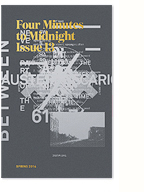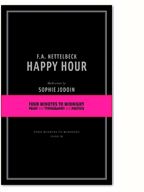Last weekend, I was in Toronto to protest the G20 summit and the now all too obvious emergence of a full-out police state in Canada. During most of the weekend, and especially during the evening jail solidarity demonstration, I was fortunate to be with friends far more reasonable than myself, and I owe them a debt of gratitude for keeping me out of trouble, out of jail. Considering what I’ve now seen and read, my weekend was spent in relative safety and I left Toronto unscathed and unharrased. The same cannot be said for many friends, comrades and random passers-by.
Much has been written, recorded and revealed over the last week. Many disgusting and disturbing things about the excessive force exerted by the police/state. The assault on basic democracy and civil rights. It’s a disservice to gloss over it, but also rather pointless for me to address here. Do the (easy) research yourself and see how much you can stomach.
So instead, here are just a few things I personally feel the need to say in order to complement the wealth of material already out there:
First and foremost, we really need to move away from a mediatised discussion of violence. It masks the issues, and definitely provided a nice smoke screen for the cops. Decoy cars burning make great TV. So let’s be clear here, no one, no living thing, was in any danger from the protesters, “black bloc” or not, last weekend. Yes, a few windows were smashed, a few cars torched, but these are just objects, symbols even. In a discussion with a friend, he mentioned that though he understood the idea of people over property he also thought “property = people, people = property” and that “you shouldn’t get to smash up his city.” Beyond the scary idea of people being equated with property, I think it’s important to note that the property that was damaged didn’t even belong to any “people.” A starbucks window, doesn’t belong to the manager of the store, it belongs to “Starbucks,” a corporate entity. Entitling a corporation with personhood is what has gotten us into this mess in the first place (please see the 1886 Santa Clara County decision). The only threat of violence came from the 20,000 cops, and as has become abundantly clear, they made that threat real.
So why were we there? This is the first question that gets masked by the “violence.” Of course there’s no singular answer to the question, as evidenced by the diversity of groups out on the streets over the course of the weekend. Each group, from the various environmentalists and labour unions (brought together so memorably for the first time in Seattle in ’99), to the pink bloc and their amazing marching band, to those marching in solidarity with Palestinian liberation (my closest “affinity group” as it were), had their own specific reasons for opposing the G20, whose global policies have impacted them all directly or indirectly. Though there may be no simple answer to such a variety of issues, there are some simple facts as to why these diverse groups were so damn angry:
The G20 is an illegitimate, undemocratic organisation, whose lack of transparency is criticised by even the most mainstream of media.
Their decisions and financial policies affect us directly (hello structural adjustment programs, hello neo-liberalism, hello financial crisis, hello to a future of austerity). And as the members of the G20 represent the elite of the elite in the world (invitees were originally drawn up on a napkin at what was no doubt a restaurant that none reading this humble blog could ever afford to eat at), those decisions are generally not in the interests of “most” people. Leaders from patently undemocractic regimes were invited, alongside a slew of business leaders for the B20. Might should not make right.
As the G20 members continues to make their piddling promises to “humanitarian” causes (which should best be understood as humanitarian cover–1 billion in aid over five years was promised by Canada for “maternal health” in Africa, while 1.2 billion is spent in three days on “security”), they still haven’t come close to living up to a percentage of anything promised in the past. So, it’s proven that they can’t be trusted and won’t be held accountable to anyone. And given the current state of the global economy, it’s also a given that they’re not even very good at making capitalism “work” either.
Some might argue that these international meetings are important, and I wouldn’t necessarily disagree, but a forum for global dialogue already exists, it’s called the UN. Simply put, the G20 is fundamentally unrepresentative of the majority of the world, yet it wields incredible power to shape it. Thus, the question has to be asked, in whose interest does it serve?
So that’s the quick and dirty version of why I think we were there. And of course everything is certainly more complex, and of course there’s easy criticism to throw at the kids who don’t “undertand the issues” and are only there for their own self-righteousness and sense of adventure. I’ve both criticised them myself and been included amongst their number. But given the rate at which the neo-liberal agenda is accelerating, I’ve come to the conclusion that I am very grateful that they are there. I’m heartened that at least a few of this second, third, or fourth “lost generation” are sensitive enough to recognise that “something” is wrong and have the courage to face it. They may enter the fray naive and idealistic, but they’ll come out of it with a new found critical perspective and rage in their hearts. Few things make you seek answers more quickly than being shot at, beat up, or imprisoned.
And then there are the cynics that will ask what the good in protesting is. Clearly, commodity culture has destroyed any sense of their collective memory. Free speech and the freedom to organise, civil rights, women’s rights, the end of the Vietnam war, etc. and for me personally, the basic fact that I’m not working on a railroad or in a mine, all these things were fought for on the streets.
None of this explains what happened in Toronto. Nine years ago in Quebec City, demonstrating against the FTAA (my most concrete point of reference) I was shot at with rubber bullets, chased through the cobblestone streets and bathed in tear gas for days on end. In terms of violence, compared to Quebec CIty, Toronto was nothing. Yet I left Toronto feeling far worse than I did after Quebec.
In Quebec, I felt that the confrontation was more or less outright. Yes, nefarious police tactics were used, Jaggi Singh was kidnapped (among others), and of course the mass media smeared the protesters with the label of violence. The force exerted by the state was incredibly excessive and many people were seriously hurt. In a piece I wrote shortly afterwards I quoted the late great Tibor Kalman saying “what I witnessed that day was ugly and nasty and it radicalised me.”
And I suppose that’s what’s really bothering me now. In hindsight, once I got past the anger and indignation, I took something valuable away from my experience in Québec. It felt like we had won, or at least made concrete steps towards something. The FTAA was never ratified and people of all stripes from all over the world had taken back the city in ways which I had never dreamed possible. For the most part, the local citizens completely supported us, leaving their garden hoses running so we could pull back from the lines and wash out our eyes. In Québec I learned for the first time what solidarity really meant and I realised I was part of a movement that was growing in strength and learning from each other.
I left Toronto feeling empty and scared. I left Toronto feeling utterly defeated.
Part of this is probably due to what seems like fading momentum (for oh so many reasons) in the so-caled anti/alter-globalisation movement. It’s been a while since I’ve been on the streets though, so this is just my perspective, but it was clear to me our numbers simply weren’t there. And those that were there seemed disorganised, ununified. I think the saddest moments in Toronto were when we were with one group marching in one direction down a street towards the fence, and a whole mass of others were marching in the complete opposite direction. This happened countless times. We let the cops cut us apart into shreds, into small scattered groups, and for some reason, we couldn’t get it into our heads and bodies that if we all got together and walked in the same damn direction, there wouldn’t have been any way to stop us.
But stop us they did, and very well at that. There’s been much written about how the police failed to properly do their job, by allowing the bloc to break windows and by arresting countless people for no discernible reason. I think that this analysis is missing the point. They did exactly what they set out to do. They kidnapped organisers from private homes at gunpoint, they intimidated people for weeks beforehand, they profiled (quebecers? really?) and they picked and chose, they struck the fear of ___ into average citizens and criminalised dissent before people even set foot in the streets. And once people did, they had the insane numbers to match each and every demonstrator, not to mention their countless “provocateur” stand-ins, making sure nothing constructive could happen amongst us. This isn’t a question of excessive force (how much tear gas was used? how many rubber bullets?), it’s a question of absolutely repressive force. They kept us all in our place, both literally and metaphorically. They’ve made a naive idealistic activist like me, feel cynical and jaded. And I’ve got to think that that was the real point. Because what else could they have been scared of? Why else would they spend the money? The state can’t be that stupid.
So what the fuck do we do now? I saw a sign in the street held by a demonstrator that said “we’re protesters NOT anarchists or terrorists.” It’s gotten to the point that a long-standing, powerful and progressive political tradition is being denounced by those that would under “normal” conditions ally themselves to the cause. Our language(s) is(are) being eviscerated and our tactics are made toothless.
Despite all this, I know I won’t stop working for change, and I know those around me won’t either. I may be scared by the state of affairs, seeing the lengths to which repression has set in, but I’m even more enraged. Our tactics and strategies need to change dramatically. Toronto proved to me that they’ve become useless. I don’t know what they need to change to, but in this overbearing lull, I feel like we need to build our bases again, go back to the grassroots and into the cafes. Explain to others and educate ourselves about what we want and collectively figure out how we can get there.
7 Comments so far
Leave a comment
One of the more intelligent and rational pieces (including mass media) I’ve read on this topic, KL. Really well done.
Comment by kerry 07.07.10 @ 11:50 amThanks Kerry, that means quite a lot coming from someone such as yourself. There are many other things I wanted to address, but it was exhausting even putting this out.
Comment by kevin 07.07.10 @ 4:26 pmi have no words for you at the moment but wanted to say i have tears in my eyes.
Comment by sontag 07.08.10 @ 2:23 amArticulate, refined, and direct words that feel like little darts for a just cause. Well done.
On my part, what I’ve seen/witnessed/got from Toronto 2010 was a sense that even the general public is starting to realize the status quo is unsustainable, and that sooner or later – a decade at the most, in my opinion – we’re all going to have to pick sides.
Either ‘they’ will win, or common sense will prevail, but either way, for better or worse, revel in the present because it’s going to end soon enough.
Comment by Seb Hell 07.15.10 @ 5:35 pmSo few people understood. So few people cared. I’m glad you wrote the piece. Can you send this out as email so more people can read about it?
Comment by sylvia lo 07.15.10 @ 11:36 pmThanks for the comments, and please feel free to spread this article widely. As I mentioned, I’d like to write more, especially on the notion of the coming austerity measures, but that’s for another time.
Comment by kevin 07.20.10 @ 1:48 pmJuly 23, 2010. A 9-0 decision of the damages awarded to Alan Cameron Ward, a BC Lawyer, The Supreme Court of Canada ruled that Canadians are entitled to compensation when their Charter rights are violated even if authorities act in good faith; authorities can no longer hide behind orders or reason that good-faith actions grant them immunity if Charter rights are violated.
The decision may have application in a variety of contexts, we’ve all heard about the G20 arrests, and if people are able to prove that they were wrongly detained or arrested or in some cases perhaps even strip-searched, they may be able to recover monetary compensation, which would also act as a deterrence in certain cases.
Leave a comment


















